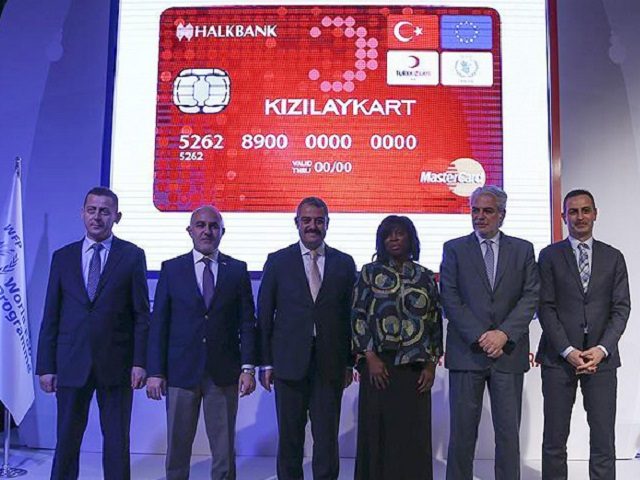In an effort to keep more Syrian migrants from flooding into Europe, the European Union (EU) is providing funding for a million debit cards for Syrian refugees in Turkey.
Turkey is currently home to some 3 million Syrian migrants who have been prevented from traveling to Europe thanks to an accord between the EU and the Turkish government that went into effect last March.
Life in Turkey for many of the migrants is reportedly very harsh, and their presence has also placed an added economic burden on their host country. To combat both of these problems the EU has launched an ambitious aid program of more than $375 million, targeting a million of the neediest Syrians in Turkey.
The debit cards, called the Kizilay card (Turkish for “Red Crescent”), are meant to ease the economic burden on Syrian migrants as well as provide a substantial cash injection into the Turkish economy.
The cards can be used to buy virtually anything—food, medicine or clothing—or redeemed for cash. According to Red Crescent’s Director General Mehmet Gulluoglu, they will allow refugees living outside camps to spend or redeem up to 100 Turkish lira a month, or about $30 for each registered family member.
“They can pay their rents, pay their bills or for food, whatever they need,” Gulluoglu said. “Because it will be certain, it will be concrete and it will be regular support.”
Recipients for the card are being chosen based on need, according to EU Humanitarian Aid Commissioner Christos Stylianides.
“They will get monthly cash transfers to the card. And of course they will be able to buy what they need to put bread on the table for their families, to provide a roof for their families, to send their children to school instead of being forced to send them to work,” he said.
Jonny Hogg, spokesman for the World Food Program, says that the cards can make a huge difference in the lives of refugees.
“I’ve met refugees who are living in caves because they can’t find anywhere else to live,” he said. “A hundred Turkish lira is going to make a profound difference to these people’s lives.”
In return for Turkey’s cooperation in stemming the flow of migrants to Greece, the EU offered the country an acceleration of its bid for EU membership, an additional $3.4 billion in aid and visa-free travel for its nationals to Europe, which has yet to be implemented.
In late July, Turkey threatened to back out of its agreement with the EU if it does not receive visa-free travel for its citizens.
Foreign Minister Mevlut Cavusoglu said that the agreement on holding back the refugee flow had worked because of “very serious measures” taken by Ankara.
“But all that is dependent on the cancellation of the visa requirement for our citizens, which is also an item in the agreement of March 18,” Cavusoglu said. “If visa liberalization does not follow, we will be forced to back away from the deal on taking back (refugees),” he said, adding that the Turkish government was waiting for a precise date for visa liberalization.
A week later Turkish President Erdogan issued his own threat to reopen migrant routes from Turkey into Europe if the EU does not honor its promises.
“The European Union is not acting sincerely with Turkey,” Erdogan said in an interview. “We have taken in 3 million refugees, whereas the EU’s only concern is keeping them out of its territory.”
The Turkish President has used the prospect of new waves of millions of migrants to pressure Brussels into accepting his demand that Turkish citizens be allowed to enter Europe freely without visas, which he sees as a first step toward eventual Turkish membership in the EU.
Follow Thomas D. Williams on Twitter Follow @tdwilliamsrome

COMMENTS
Please let us know if you're having issues with commenting.